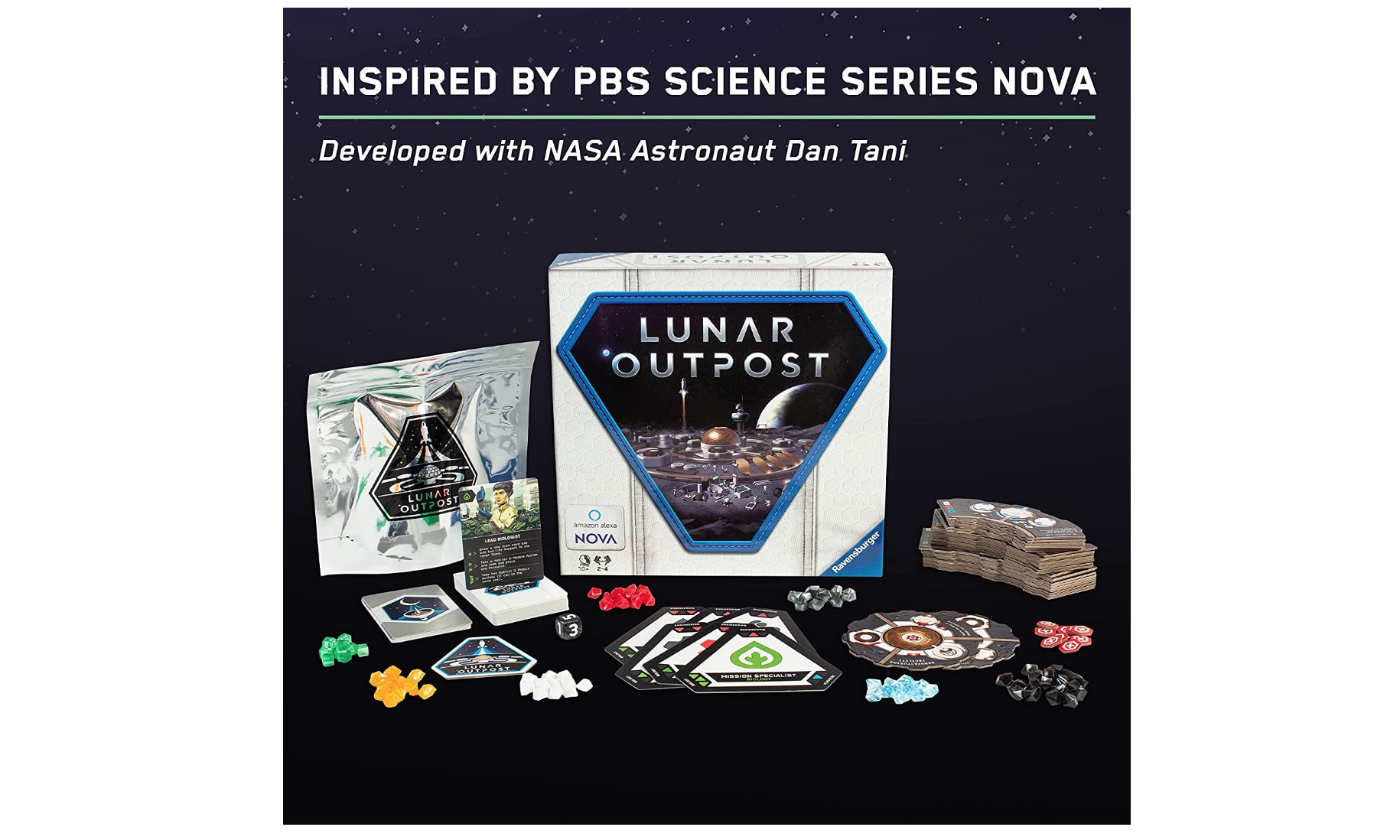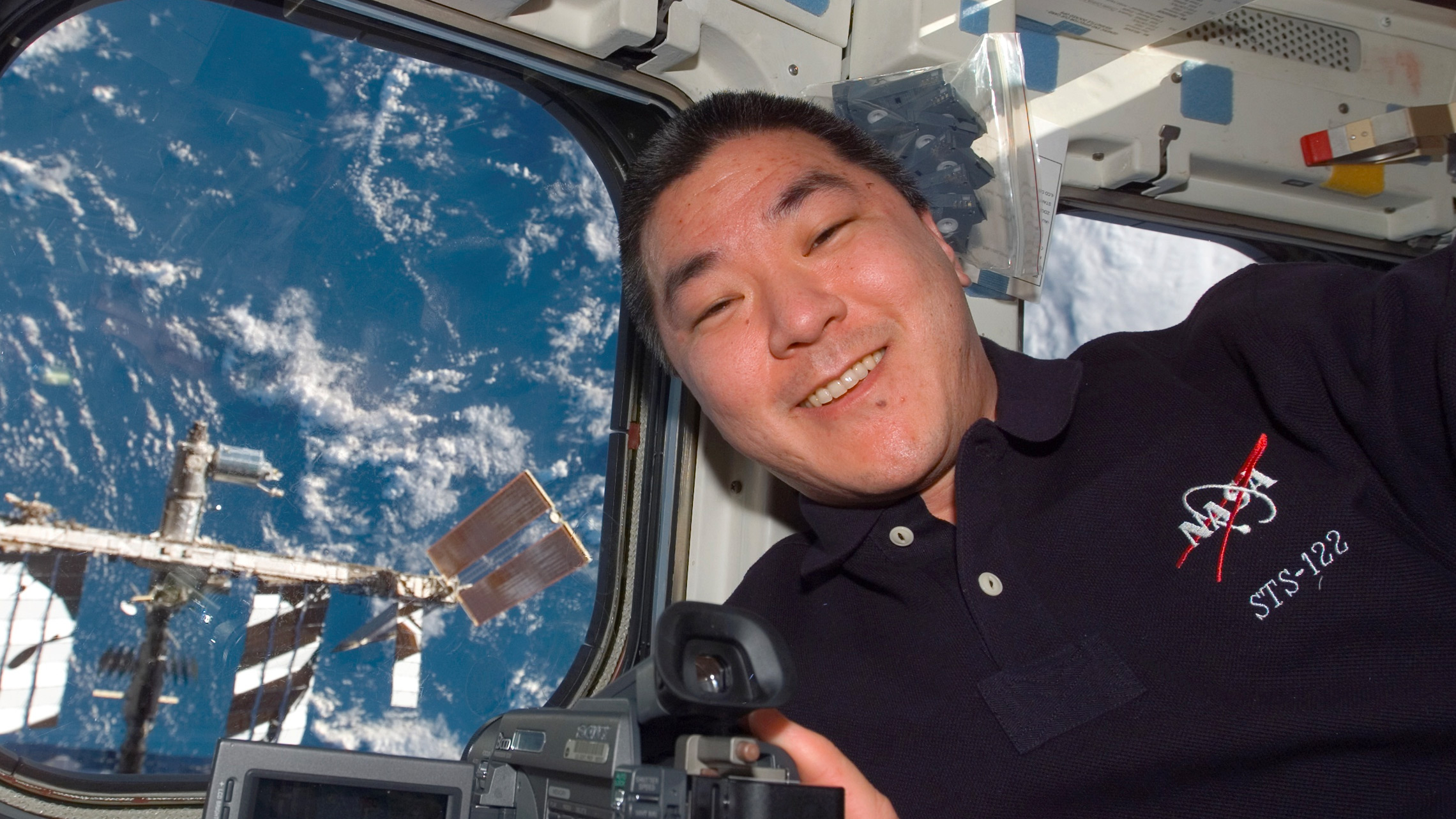It’s time to try your own hand at establishing a lunar outpost.
As NASA’s Artemis 1 moon mission creeps ever closer to its first unmanned flight later this summer, moon lovers who dream of futuristic lunar bases on our lone satellite can satiate their longings with a fantastic new board game from German game and toy company Ravensburger AG titled “Lunar Outpost.”
Inspired by the award winning PBS science series, Nova, and linked with an Amazon Alexa component which acts as Mission Control, “Lunar Outpost” (opens in new tab) is a co-operative amusement where players work together with a team of astronauts to build a permanent settlement on the moon. This endeavor can take the form of a beginner base, habitat colony, scientific lab, research center, or even a manufacturing facility.
Related: Best space board games of 2022
“Lunar Outpost’s” gameplay allows you to communicate directly with Mission Control via Alexa while dealing with unexpected hazards like power surges, meteorite strikes, oxygen leaks, and more random calamities. Gamers can mine lunar elements to provide the needed construction materials, then activate and test the habitat’s capabilities to ensure the structure’s safety and integrity.
With the clock ticking, your team needs to fabricate four inner ring base modules and six middle ring modules prior to time running out in order to deem the mission a total success.
Each deluxe “Lunar Outpost” (opens in new tab) starter set comes packed with 26 base parts, 6 astronaut tiles, 50 crew cards, 105 moon resources, 10 life support cubes, 1 first player tile, 10 offline tokens, 1 resource bag, 15 event cards, 1 die, and an official rulebook. Players not wanting to use the new Alexa feature can use the game’s deck of event cards instead.
To infuse the project with a distinct level of authenticity and realism, the folks at Ravensburger called upon former NASA astronaut Dan Tani to help designers create a space-based role-playing game that delivers an authentic adventure on the moon.
Tani entered the astronaut program in 1996 and served on three NASA space shuttle missions, STS-108, STS-120, and STS-122, logging 34 scheduled spacewalk hours during his distinguished career.

Space.com connected with Tani regarding his involvement with “Lunar Outpost” to learn what aspects of the board game’s conception was most important to him and what players can expect when they embark on this difficult outer space enterprise.
Space.com: How did you get involved with this “Lunar Outpost” project?
DAN TANI: Ravensburger’s development team reached out to me asking about my interest in advising on a space-themed board game. I was happy to collaborate as I have an interest in public outreach, education and games!
Space.com: What knowledge did you acquire as a NASA’s astronaut to prepare you for helping create a space-based board game?
TANI: When building something as complex as the International Space Station or a Lunar Outpost, game designers can’t simply consider how the final facility will operate. It’s important to also consider how everything will function and co-exist during all the steps of its construction.

Space.com: What elements of “Lunar Outpost’s” gameplay were important to get correct?
TANI: I was concerned with the accuracy of terminology and the engineering aspects of the structure on the moon. I also wanted to ensure that the visual aspect of the game was engaging and representative of what we think we will eventually send to the moon.
Space.com: Why is it so vital to establish a real outpost on the moon in the near future?
TANI: The moon provides a great “test bed” for technologies, procedures and techniques that will need to be developed if we are to live outside of Earth. The Moon is “only” a few days from Earth and provides a “local” place to develop and hone our designs and skills. Equally critical, a Lunar Outpost will provide us a home base to perform revolutionary science on the origins of the moon, and in turn, our solar system and the universe.
Ravensburger AG’s “Lunar Outpost” (opens in new tab) is available for purchase now.
Follow us on Twitter @Spacedotcom (opens in new tab) or on Facebook (opens in new tab).

